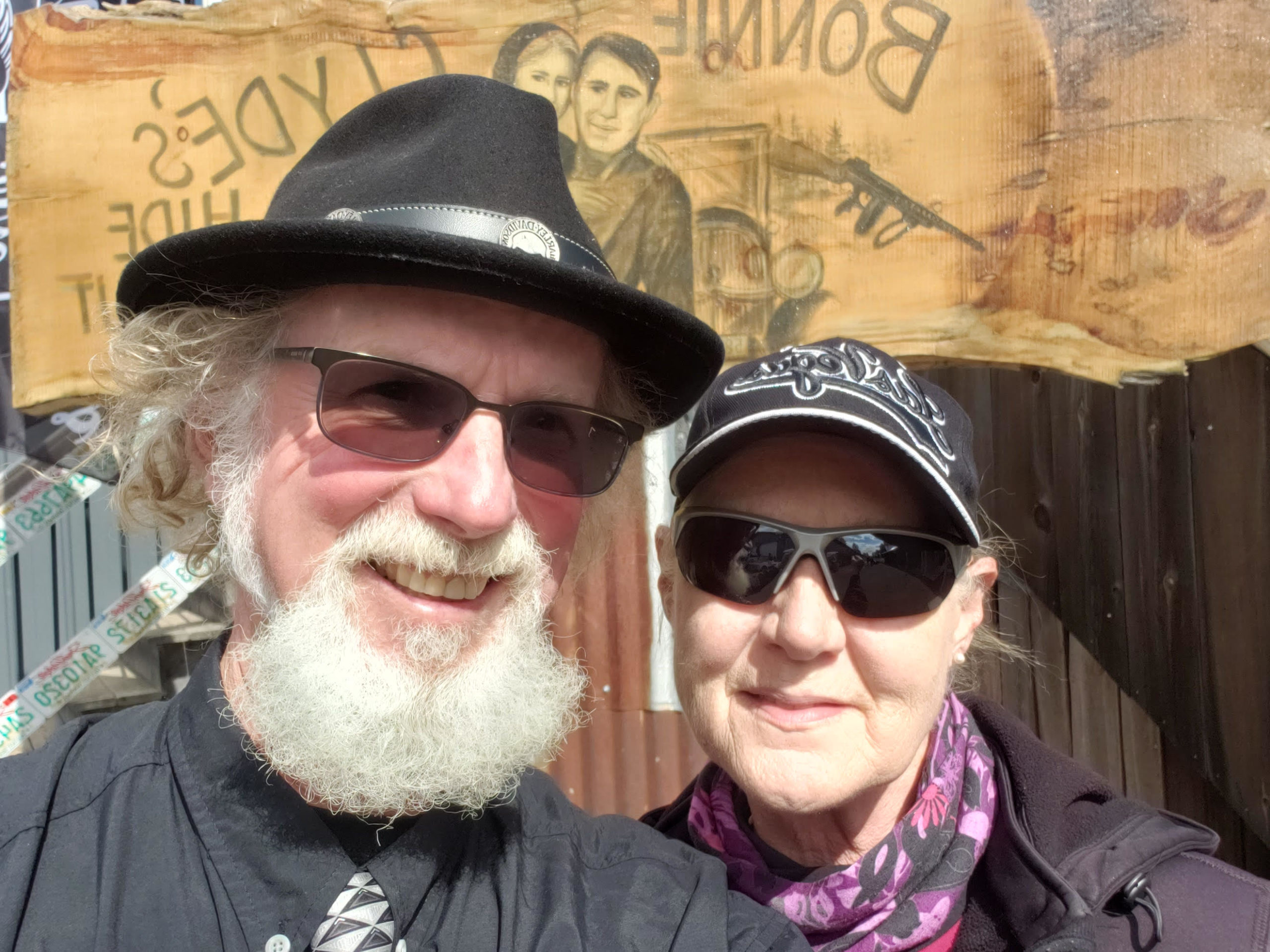
JACK CHASE: WAS ORIGINALLY MISDIAGNOSED WITH HEPATITIS
Given A Year To Live in 2013, Today Jack Shows No Signs of Active Cancer
Written By Julia Brabant
January 2021
Diagnosed: April 15, 2013
Status: No Signs of Active Cancer
Jack’s Willingness to Undergo Innovative Treatments Helps Pave the Way for Future Patients
Fighting pancreatic cancer takes a toll, and not everyone who battles the disease has the energy or emotional bandwidth to speak about their experiences afterward. Jack Chase believes that, by sharing his own story as an almost 8-year survivor, he might be able to give those facing similar diagnoses a better understanding of their options – and hope.
A native of northern Wisconsin, Jack was working as a machinist at a paper mill and spending his leisure time alongside his now-wife, Fay, when things took a turn in January of 2013. He and Fay noticed his skin taking on a yellowish, jaundice-like hue. Concerned, he sought help from several doctors, one of whom misdiagnosed him with hepatitis. After several visits, he found a physician who gave him an accurate diagnosis: pancreatic cancer. This is why seeking second opinions are so crucial.
That same physician told Jack he wasn’t going to live another year. He did, however, refer him to Dr. Douglas B. Evans, MD, FACS, a world-renowned oncologist, surgeon and researcher specializing in pancreatic cancer at Milwaukee, Wisconsin’s Froedtert Medical College of Wisconsin, a few hours’ drive from Jack’s home. Casting aside Jack’s initial doctor’s claim that he’d not live another year, Dr. Evans recommended Jack sign on to a clinical trial and begin an aggressive treatment regimen involving a combination of chemotherapy, radiation and surgery.
For four months, he underwent radiation five times weekly and chemotherapy once weekly before taking a month off in preparation for the Whipple surgery. The procedure is an invasive one that involves removing the head of the pancreas, the gallbladder, the bile duct and the first part of the small intestine.
He remembers as if it were yesterday the words one of the nurses spoke to him ahead of the operation.
“What’s your goal?” She’d asked. “It’s always nice to have a goal after surgery.”
“Well…I suppose I’d like to see my granddaughter get married,” he answered.
“When is she getting married?” the nurse asked.
“I don’t know; she’s only 3,” he’d replied.
After undergoing the Whipple procedure, Jack recovered at Kathy’s House, a hospital guest house based in Wauwatosa, a community just outside Milwaukee, for a few weeks. He then returned home to northern Wisconsin, where he continued chemotherapy treatments until the last treatment on December 10, 2013.
In the days, months and years since, Jack has continued to work at the paper mill. He credits his employer with adapting to his needs and allowing him to work when he was up to it, which he says was a great distraction from his health issues. He also commends his coworkers for their efforts to make his return as comfortable as possible.
“When my feet were numb, they’d cart me from the building to my car,” he said. “They’d even scrape the ice off the windows – anything that made things easier for me.”
He also gives “all the credit in the world” to Dr. Doug Evans and his team for encouraging his participation in the clinical trial and otherwise advocating for him every step of the way. He sees Dr. Evans once a year for follow-up appointments and continues to take Creon pills, which help the body break down foods when the pancreas is unable to help do so.
“The goal for the trial was to find 100 patients, but it’s not always easy to find 100 patients are willing to participate,” he said. “I wanted to help wherever I could.”
He also gives credit to his motorcycle friends, who he says exercised endless patience on outings and always waited for him when symptoms flared or sidelined him. Finally, Jack credits his family, including his wife, Fay, his son, BJ, and daughter-in-law, Katie, and his grandchildren, Nolan and Molly, for being his strength and source of support since his diagnosis. Molly is the same granddaughter he told the nurse he wanted to see walk down the aisle ahead of his 2013 surgery. Then 3, she has since turned 10, placing Jack that much closer to his goal.
According to Dr. Evans, Jack, as an 8-year survivor, has what doctors essentially equate with a cure. Having pancreatic cancer reemerge after that many years in treatment is virtually unheard of.
Jack Chase has shown no signs of active cancer since 2013.



